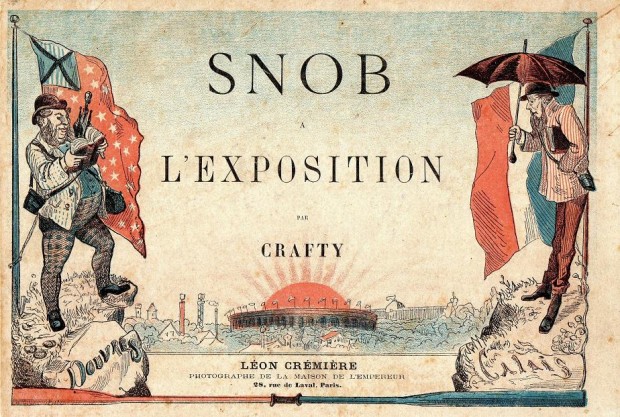You’re all a bunch of snobs.
This has been the popular view among mainstream news publications — and presumably their readership — of the specialty coffee industry since at least the early 1990s, when a to-go cup of Starbucks or Peet’s was something of an elitist status symbol.
At this point, there is no reason to explore why the word snob or the concept of snobbishness has grown so closely associated with coffee. There are undoubtedly countless acts of legitimate coffee snobbery every day in the wild — in cafés, in homes, from behind pedestals, and probably even in this blog — but no more than in any field that hinges on knowledge, enthusiasm and brand patronage. Regarding snobbishness, the infamous quote from US Supreme Court Justice Potter Stewart regarding what constitutes obscenity, specifically pornography, comes to mind: “I know it when I see it.”
We’ve all seen “it” in coffee here and there. And at some point in recent history, the English-speaking world had seen enough of “it” that the phrase “coffee snob” entered the lexicon. If by sheer semantic inertia, it seems here to stay — truly an unfortunate burden for the specialty coffee industry, which is in fact primarily composed of people whose character can be aptly summed up by a collection of snobbish’s antonyms, like humble, generous, courteous, etc. While the label, I think, is most often applied to the most enthusiastic of consumers, it is nonetheless a verbal curse on the industry that caters to them.
The craft beer industry gets “geeks” — not necessarily flattering, but endearing in a way. The wine industry gets “aficionado,” a label defined by knowledge and enthusiasm with virtually no negative connotations. There are foodies, chocolate lovers, bon vivants, gourmands and all kinds of other relatively inoffensive names for people who appreciate some of the finer things in the food world. But coffee gets “snobs,” and it feels more like name-calling than harmless typecasting.
As with any figure of speech, the disconnect between language and reality comes through lazy propagation. Case in point, a recent story in The Telegraph led with the headline “A generation of coffee snobs — many youngsters now refuse to drink instant.” This was followed by a story in Munchies — a Vice Media site that purports to “chronicle the wide spectrum of the global culinary experience and the diverse voices that are pulling us forward” — that led “A New Report Says that Millennials are All Coffee Snobs.” Way to “pull us forward,” Munchies.
The report in question is an annual UK coffee market report from Mintel that makes no mention of snobbery, although it does note declining UK instant coffee consumption and increased single-serve pod consumption among younger consumers. According to the Munchies piece, this is the definition of coffee snobbery. On consumers ditching instant, Munchies writer Phoebe Hurst even drops an “Oh, you fancy huh?” It’s the equivalent of saying, “Oh, look at you and your shelf-stable cheese in a can? Who are you, the King of France?” It’s maddening, especially coming from a source that butters its bread through the sustained interest of food-loving consumers.
But I digress. Ms. Hurst is just one in a long line of people who has, without any justification, pointed a finger at someone holding a cup of coffee and said the word “snob.” Unfortunately for coffee, there are no second chances at first impressions.
Nick Brown
Nick Brown is the editor of Daily Coffee News by Roast Magazine.
Comment
4 Comments
Comments are closed.







Anybody who liked wine that didn’t come as either “red” or “white” in the American midwest was a wine snob until about 10-15 years ago. Give it time.
I prefer the term ‘Cafficionado”
Mitchell – that is absolutely brilliant and I am hereby stealing it. Although I suppose cafficionadA is accurate here. (Hmm maybe I shouldn’t have given you premeditated evidence of theft in print …) Thanks!
I roast, I blend, I grind by hand. I have, at this time, over ten different ways to prepare coffee. Yes, I’m a coffee snob. Now shut up and drink.